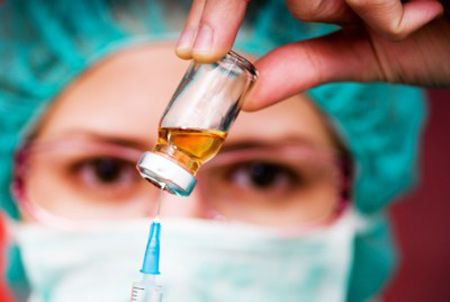Pritelivir, Genital Herpes Treatment, Could Be 'Beginning Of A New Era' In Combatting Spread Of The STD

While current treatment options for genital herpes have been successful in limiting the number of outbreaks the patient experiences over time, there is still no cure for this highly infectious sexually transmitted infection (STI). A study funded by the pharmaceutical company AiCuris has produced a new drug known as pritelivir that shows promise as a future treatment option for type 2 genital herpes.
According to the Centers for Disease Control and Prevention, each year 776,000 people in the United States develop new genital herpes infections, caused by either the herpes simplex virus type 1 (HSV 1) or type 2 (HSV 2). Around one out of every six Americans between the ages of 14 and 49 are affected by the genital HSV 2 infection. HSV 2 infections affect one out of every five women over the age of 14 compared to one out of every nine men.
Genital herpes can be spread from person to person through anal, vaginal, or oral sex when HSV 1 or HSV 2 escapes from soars in the groin area. Considering signs and symptoms of herpes can go unnoticed or can be mistaken for another skin condition, HSV 2 carriers can be unaware of their condition. Symptoms can appear in the form of blisters on the sufferer’s mouth, rectum, or genital area that break and leave painful sores that may not clear up for weeks. People with a compromised immune system are especially at risk for developing genital herpes.
Researchers working on this genital herpes vaccine recruited 156 patients who had tested positive for HSV 2. Participants were either given a daily dose of 5 mg, 25 mg, or 75 mg; a weekly dose of 400 mg; or a placebo for a period of 28 days, HealthDay reported. Throughout the study each participant was asked to record instances of genital herpes signs and symptoms. The research team collected daily swabs of each participant’s genital area for HSV 2 testing.
Patients who were given a daily regimen of placebos reported HSV shedding — meaning the virus is active and can be replicated in the body — 16.6 percent of the 28 days. Patients who received 5 mg of pritelivir a day were found to exhibit HSV shedding 18.2 percent of the time, and those who received 25 mg a day reported HSV shedding 9.3 percent of the time. Among the two largest doses of pritelivir, participants assigned a daily dose of 75 mg experienced HSV shedding 2.1 percent of the 28 days, while the group who received 400 mg each week experienced it 5.3 percent of the time.
Health care professionals urge people affected by genital herpes to abstain from sex during an outbreak of genital herpes sores. Although the use of latex condoms can reduce a person’s chance of being infected by HSV 2, signs and symptoms can still occur in the area of the body covered by the condom. Three of the major antiviral drugs meant to keep genital herpes outbreaks at bay include acyclovir (Zovirax), famciclovir (Famvir), and valacyclovir (Valtrex).
Source: Corey L, Timmler B, Wald A. Helicase–Primase Inhibitor Pritelivir for HSV-2 Infection. New England Journal of Medicine. 2014.



























